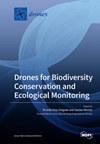Secrecy Energy Efficiency Maximization for Secure Unmanned-Aerial-Vehicle-Assisted Simultaneous Wireless Information and Power Transfer Systems
IF 4.4
2区 地球科学
Q1 REMOTE SENSING
引用次数: 0
Abstract
Unmanned aerial vehicle (UAV)-assisted simultaneous wireless information and power transfer (SWIPT) systems have recently gained significant attraction in internet-of-things (IoT) applications that have limited or no infrastructure. Specifically, the free mobility of UAVs in three-dimensional (3D) space allows us good-quality channel links, thereby enhancing the communication environment and improving performance in terms of achievable rates, latency, and energy efficiency. Meanwhile, IoT devices can extend their battery life by harvesting the energy following the SWIPT protocol, which leads to an increase in the overall system lifespan. In this paper, we propose a secure UAV-assisted SWIPT system designed to optimize the secrecy energy efficiency (SEE) of a ground network, wherein a base station (BS) transmits confidential messages to an energy-constrained device in the presence of a passive eavesdropper. Here, we employ a UAV acting as a helper node to improve the SEE of the system and to aid in the energy harvesting (EH) of the battery-limited ground device following the SWIPT protocol. To this end, we formulate the SEE maximization problem by jointly optimizing the transmit powers of the BS and UAV, the power-splitting ratio for EH operations, and the UAV’s flight path. The solution is obtained via a proposed algorithm that leverages successive convex approximation (SCA) and Dinkelbach’s method. Through simulations, we corroborate the feasibility and effectiveness of the proposed algorithm compared to conventional partial optimization approaches.安全无人机辅助同步无线信息和电力传输系统的保密能源效率最大化
无人机(UAV)辅助的同步无线信息和电力传输(SWIPT)系统最近在有限或没有基础设施的物联网(IoT)应用中获得了极大的吸引力。具体来说,无人机在三维(3D)空间的自由移动使我们能够实现高质量的信道链接,从而增强通信环境,并在可实现的速率、延迟和能效方面提高性能。同时,物联网设备可以通过遵循SWIPT协议收集能量来延长电池寿命,从而延长整个系统的使用寿命。在本文中,我们提出了一种安全的无人机辅助SWIPT系统,旨在优化地面网络的保密能效(SEE),其中基站(BS)在无源窃听器存在的情况下将机密信息传输到能量受限的设备。在这里,我们采用无人机作为辅助节点来改善系统的SEE,并根据SWIPT协议帮助电池有限的地面设备进行能量收集(EH)。为此,通过联合优化BS和UAV的发射功率、EH操作的功率分割比和UAV的飞行路径,建立SEE最大化问题。该解决方案是通过提出的算法,利用连续凸逼近(SCA)和丁克尔巴赫的方法。通过仿真,与传统的部分优化方法相比,验证了该算法的可行性和有效性。
本文章由计算机程序翻译,如有差异,请以英文原文为准。
求助全文
约1分钟内获得全文
求助全文

 求助内容:
求助内容: 应助结果提醒方式:
应助结果提醒方式:


